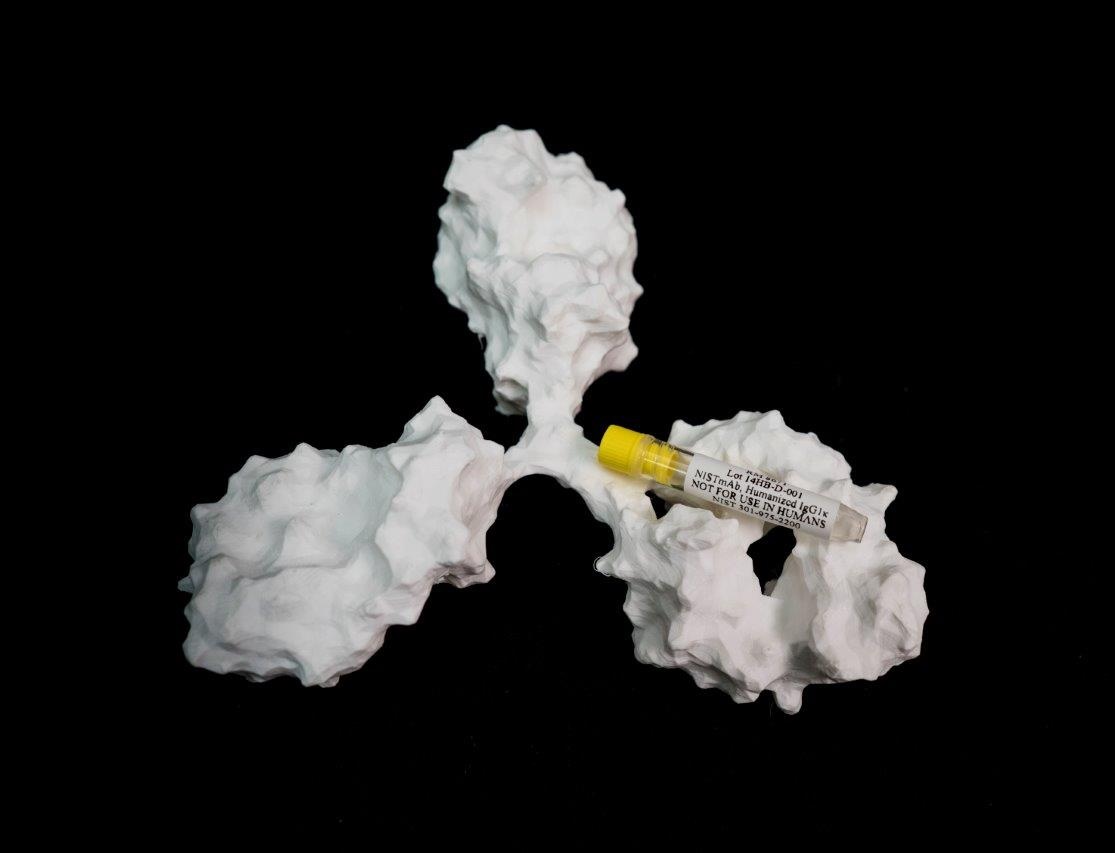Publications
Results: 103
LC-MS peptide mapping of monoclonal antibodies using the mirror proteases trypsin and Tryp-N
Thursday, January 22 2026
Accurate characterization of the amino acid sequence and post translational modifications (PTMs) of monoclonal antibodies (mAbs) is essential for evaluating product quality. Peptide mapping through bottom-up LC/MS analysis is a key methodology for this purpose. While trypsin is commonly the first choice for mAb digestion, it typically yields high but incomplete sequence coverage. As a result, supplementary endoproteases such as Asp-N, chymotrypsin, Glu-C or Lys-C are often employed to enhance...
Corundum Particles as Trypsin Carrier for Efficient Protein Digestion
Wednesday, January 21 2026
Reusable enzyme carriers are valuable for proteomic workflows, yet many supports are expensive or lack robustness. This study describes the covalent immobilization of recombinant trypsin on micrometer-sized corundum particles and assesses their performance in protein digestion and antibody analysis. The corundum surface was cleaned with potassium hydroxide, silanized with 3-aminopropyltriethoxysilane and activated with glutaraldehyde. Recombinant trypsin was then attached, and the resulting...
A new deep field scan liquid chromatography-mass spectrometry method to identify host cell proteins in therapeutic proteins
Tuesday, September 30 2025
Residual host cell proteins (HCPs) in therapeutic proteins pose a persistent challenge to detect due to their low abundance and wide dynamic range relative to the drug substance. To address this, we developed a "deep field scan" liquid chromatography tandem mass spectrometry (LC-MS/MS) method that enhances HCP detection without sample enrichment or clean-up, by leveraging an automated, cumulative target mass exclusion list and iterative data acquisition. Built on the Thermo Orbitrap AcquireX...
Correlating high concentration behavior of commercial or clinical-stage monoclonal and bispecific antibodies with miniaturized polyethylene glycol precipitation assay
Saturday, September 20 2025
Subcutaneous delivery of protein therapeutics often necessitates strict limitations on low injection volumes and high protein concentrations. As a result, achieving high protein solubility is a critical quality attribute for subcutaneous protein drug products. Direct characterization of protein solubility during the early stages of drug development, however, is often impractical due to limited sample availability. In this study, we investigated the utility of a miniaturized, high-throughput PEG...
High-Performance Native Separation of mAb Proteoforms by CZE-MS under Native and Denaturing nanoESI Conditions for Ultrasensitive Charge Variant Characterization
Monday, August 11 2025
The monitoring of charge variants is crucial for quality control of therapeutic antibodies as variants can influence the efficacy or safety of a biopharmaceutical. Capillary zone electrophoresis (CZE) is a powerful tool for the efficient separation of charge variants using optimized electrolyte systems and is thus widely applied in the pharmaceutical industry. However, these electrolytes do not allow for coupling to mass spectrometry (MS), preventing direct identification of the separated...
